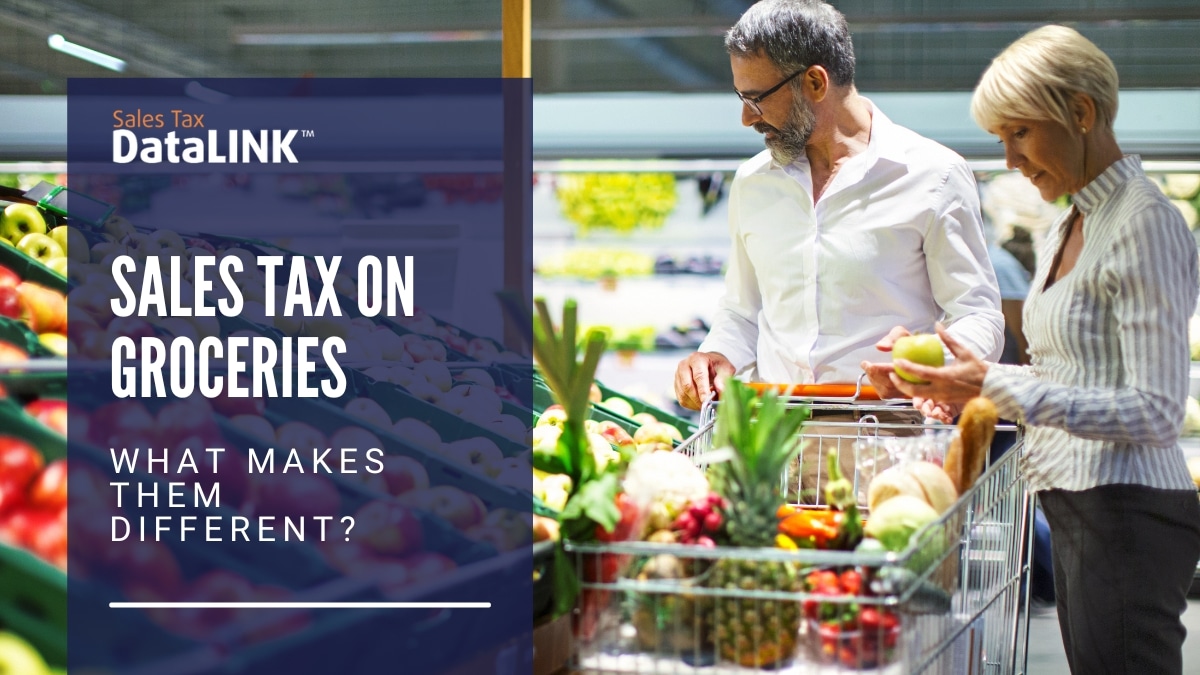Sales Tax on Groceries
13 states still charge sales tax on groceries as of this writing. There might be fewer by the time you read this, though, because several of those states are thinking about making a change.
Why do some states tax groceries differently from other goods… and how could that affect your business?
The dirty dozen
It’s a baker’s dozen, or maybe a grocer’s dozen since there are 13 states that charge state sales tax on groceries;
- Arkansas charges a reduced 1.25% on groceries, with a full 6.5% on candy and soft drinks.
- Illinois charges 1% on groceries and a full tax on candy, soft drinks, and alcohol.
- Missouri charges 1.225% on groceries.
- In Virginia, it’s 2.5%, with the full 5.3% state tax for prepared foods and alcohol.
- Utah goes to 3%.
- Hawaii and Alabama each charge 4%. Alabama is one of just three states that charge full sales taxes on food.
- Tennessee, Oklahoma, and South Dakota tax groceries at 4.5%.
- Idaho is 6%.
- Kansas checks in at 6.5%, the full state sales tax.
- Mississippi is 7% but doesn’t allow local taxes on top of that, as most states do.
The following states have local taxes but not state taxes on groceries:
- Colorado
- Georgia
- Louisiana
- North Carolina (uniform 2% rate)
- South Carolina
Taxability complications
The companies selling groceries in these states just follow the same rules as everyone else, right?
Not quite.
The definition of groceries is not simple in most states. We’ve already mentioned that candy, prepared foods, and soft drinks are sometimes taxed differently from other foods. But this can be complex. A couple of famous examples of weird sales tax laws fall into this category.
In New York, an unsliced bagel is just like a loaf of bread, but a sliced bagel is prepared food and must be taxed like other tangible goods. In more than one state, candy made with flour is in the groceries category, but if there’s no flour in the recipe, it’s taxed as candy. You’d be surprised how many candy recipes contain flour.
Less famous is the rule in Texas that says individual-serving packages of crackers are taxable but larger containers are not. Or the rule in several states that says candy is taxable if it comes in pieces (like marshmallows) but not if it’s not in pieces, like marshmallow creme. Or the law that makes kids’ Lunchables taxable if they include a candy bar.
Other distinctions include food-bearing plants, which may be fully taxed, hot foods, foods if they are used decoratively (pumpkins, for example), baked goods other than bread, and plenty of other surprises.
A manufacturer of gourmet crackers who sell directly to consumers may have a tough time determining the correct tax rate for any given state and local jurisdiction — and it can depend on the packaging.
What makes groceries different?
The basic reasoning behind low or no sales tax on food is that food is a necessity. Candy and prepared foods may be luxuries, but bread and milk are basics. However, states with no sales tax on bread generally also have no sales tax on potato chips and caviar, which may or may not be basics.
Sales tax on basic groceries represents a greater share of the income of lower-income families. These families spend a higher percentage of their income on food, to begin with, and then the tax is a higher percentage of their income on top of that. Because of this, states like Kansas, Utah, and Oklahoma are debating the end of grocery taxes for their residents.
There are those who say that taxes should be equivalent for all industries. A broader tax base, they say, allows states to charge lower tax rates in general. States may also hold onto their grocery taxes simply because they don’t see any way to replace the revenue those taxes bring in, whether they are philosophically a good thing or not.
These questions matter to legislators and consumers, but for businesses, decisions about sales tax compliance have to be based simply on what the law requires.
It’s complicated
Sales taxes are complicated and confusing. It makes sense to automate your sales tax compliance with highly accurate software solutions like Sales Tax DataLINK. But you may also need to get some expert advice to make sure you are registered and filing in all the places where you need to do so.
That’s why we offer full sales tax services. Call us at 479-715-4275 and let us help you tame sales tax compliance.




